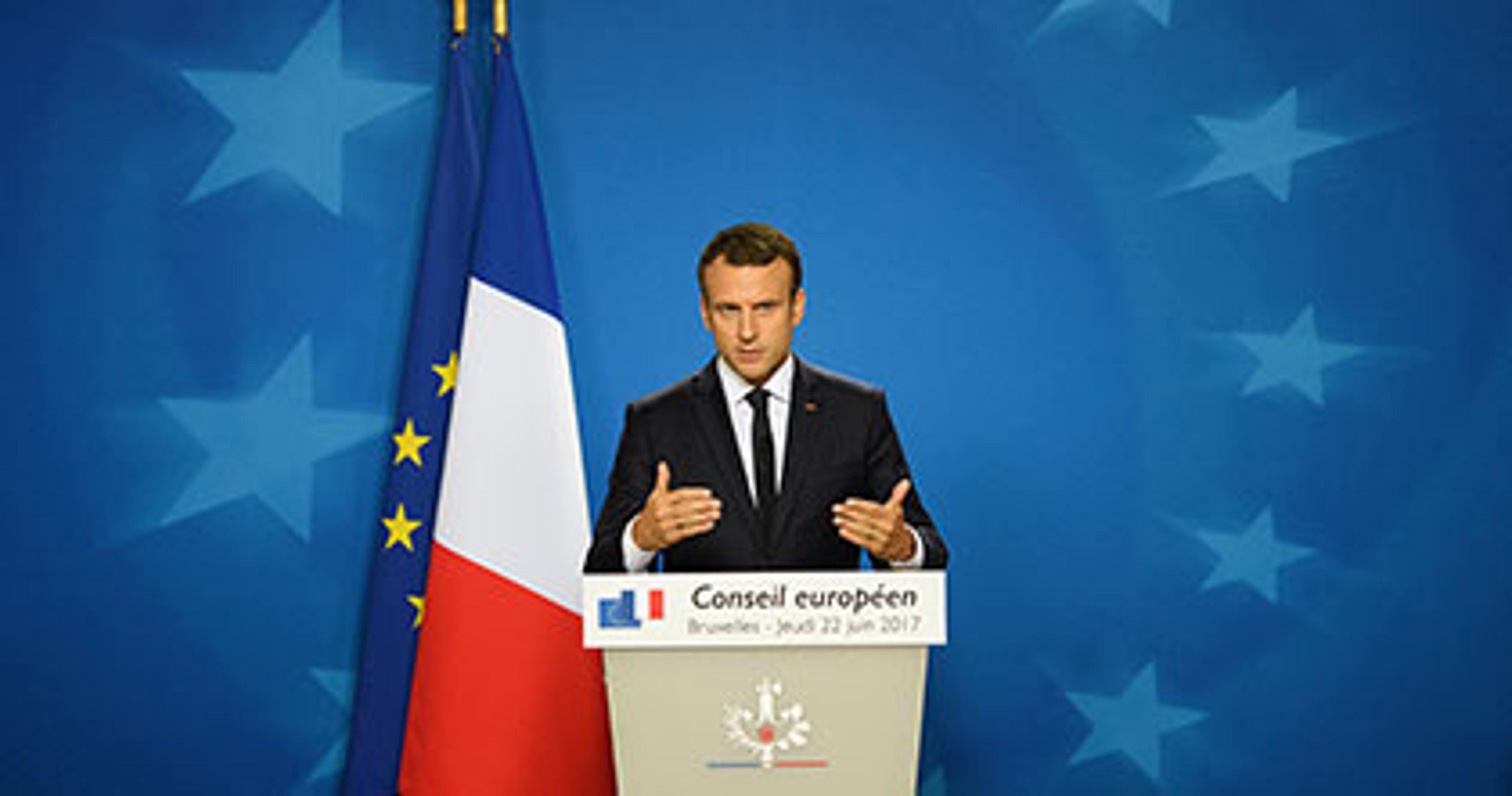Weekend Roundup: Europe on the Verge

French President Emmanuel Macron. (Getty)
The most eloquent statement about rising to the challenge of the coronavirus pandemic has come from Emmanuel Macron. “You have to be available for your destiny,” the French president said recently in an interview with the Financial Times. In this he was articulating his hope that the present crisis would finally push the European Union toward full integration as a solid pillar of the West able to enduringly stand on its own as the U.S. and China duke it out on the world stage in every area from artificial intelligence to military might to trade. Unfortunately for Macron and Europe, low reality often trumps high rhetoric. Fate is not cooperating with destiny.
If anything, the onslaught of COVID-19 may prove to be the microbe that breaks the camel’s back. The dream born from the ashes of the last 20th century world war — that a Europe in which historically contentious nations would be so tightly bound that future conflict would be impossible — risks succumbing to a wholly different kind of 21st century challenge.
Two clichés are competing to describe Europe’s predicament. On the one hand, it is true that the perennial rumor of the death of the EU has been greatly exaggerated. After all, it survived, if barely, the two previous crises of the last decade — the euro crisis in the wake of the 2008 financial collapse and the recent populist upheaval provoked by a flood of refugees. Yet, on the other hand, history has usually confirmed the baseball analogy of “three strikes you’re out.”
The underlying condition that makes elderly Europe so vulnerable remains the unwillingness of nations that have failed to converge economically to collectively share burdens, whether financial or with respect to migration, as well as the benefits of free movement of citizens across borders and a single market.
As during the euro crisis, the core point of contention involves what is called “the mutualization of debt.” In short, the thrifty nations of the north, notably the Netherlands and Germany, resist using their hard-earned savings to bail out what they regard as the louche economies of the south — Greece, Italy and Spain with France somewhere in the middle — even when the cause of the crisis, in this case the pandemic, was not brought on by any of their own actions. The still-smarting wounds of austerity imposed by Germany on the rest of Europe during the euro crisis were only reopened by its un-empathetic ban on exporting medical protective equipment at the height of the coronavirus contagion in Italy.
This festering animosity is akin to the battle currently going on in the U.S., where Republicans in Congress are resisting proposals by Democrats to bail out “blue state” budgets with generous, but underfunded, pension benefits for public employees that add to the woes of a stalled economy drained of tax resources. That this issue would arise in the U.S., where federalism is nearly 250 years old, only underscores how the tensions among diverse polities that have only sought to federate in recent decades can tear asunder the prospects of integration.
Europe today appears to be suspended in a state of purgatory. Its member states are already too bound together to easily part, but too apart to easily bond further. With COVID-19, the moment of truth has arrived. Either the EU will once again eke out survival, or its historic project will be damned. In this context, one must wonder how the United Kingdom will ever execute Brexit, cutting critical ties to its largest market in the midst of a pandemic-induced depression, when its “special relationship” with the U.S., on which it bases its economic hopes, will likely descend into stiffer protectionism.
Nils Gilman, the vice president of programs at the Berggruen Institute, could well be right with his prediction that Macron could turn out to be “Europe’s Gorbachev.” Just as Gorbachev’s reform policies of perestroika and glasnost so exposed the contradictions of the Soviet system that it fostered collapse, Gilman has observed, so too Macron’s aggressively pro-European integration stance might well push the system to the limits of its survival. The EU today seems to be on the verge of that eventuality.
Like the rest of the world caught in the devolving spiral of de-globalization the pandemic has accelerated, Europe must face anew the challenge of how to reconcile the centrifugal pull of ingathering with the centripetal imperative of integrated cooperation where common challenges beyond the scope of bounded entities converge. Either a bruised Europe will emerge as the singular outpost of a dream that has faded elsewhere, or it will disintegrate along with the rest. Only time, and not a long time, will tell whether fate bests Macron’s vision of destiny.